Petrochemicals Enzymes Recycling Cellulose 25-06-2020 - Arhive
Petrochemicals Enzymes Recycling Cellulose
Crude Oil Prices Trend

-Bottle bales prices move lower amid increasing supply
Recently, bottle flakes cleaning plants in Hebei, Shandong and Fujian and some recycled chemical fiber plants reflect that PET flake suppliers show higher enthusiasm for sales. Bottle bales supply increases obviously, and purchase prices move lower generally.
In Hebei, purchase prices of bottle bales have declined for two days. Prices of three-color bottle bales decline from 3,500yuan/mt to 3,300yuan/mt, and supply has not reduced after prices decline. In Fujian, supply is large when buyers purchase bottle bales at 3,200yuan/mt, and then, buyers revise lower the prices to 3,000yuan/mt.
Then, why do bottle bales prices decline recently?
First, with higher temperature, the consumption of soft drinks in the market has increased significantly, and the recycling volumes of bottles increase.
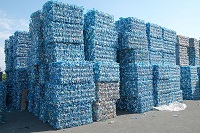
-COVID-19 Sparks Renaissance of Single-Use Plastics
Many states as well as countries around the world have taken great pains to eliminate plastic drinking straws and stirrers from the waste stream, including through regulations and outright bans. Plastic retail bags haven’t fared so well, either, with bag bans proliferating globally. Petrochemicals Enzymes Recycling Cellulose
Plastic was expected to “lose its share of the global foodservice single-use product market to paper and other more eco-friendly materials through 2024,” according to a study update from the Freedonia Group, “Foodservice Single-Use Straws, Bags Boosted by COVID-Related Suspension of Bans.”
That changed somewhat earlier this year as COVID-19 caused even the most strictly regulated markets, including California and the United Kingdom, to suspend regulations on single-use plastics, said the Freedonia report. “This will provide a short-term boost for the global single-use foodservice product market, which totaled $58 billion in 2019.”

-Sacmi hit by slowdown but PET remains strong
Italian packaging equipment manufacturer Sacmi has pointed to a sharp slowdown in global demand as its revenue fell 13 per cent in 2019.
Sacmi said the slowdown had not only occurred in more mature markets such as Europe, but also in China and the Far East, with growth falling short of expectations in almost every sector. Petrochemicals Enzymes Recycling Cellulose
But while its ceramics business suffered the most, the company’s closures, containers & PET operations had “continued to perform positively”, according to its 2019 Annual Report.
Sacmi’s beverage, and packaging & chocolate divisions fell short of expectations, again as a result of the slowdown in international demand for complete plants, the report said. This was offset by a strong drive towards the development of new machines, it stated.
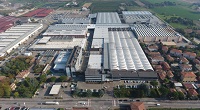
-Henkel and Terracycle partner to help keep Canada clean
Henkel, a leader in laundry and home care, has teamed up with international recycling leader TerraCycle® to create a free recycling program throughout Canada for Henkel’s Sunlight® and Purex® brand plastic detergent pouches. By purchasing Sunlight or Purex pouches in Canada and recycling the empty containers through the program, Canadian consumers can earn TerraCycle points redeemable for charitable gifts or converted to cash and donated to the non-profit, school or charitable organization of their choice. Petrochemicals Enzymes Recycling Cellulose
“Henkel has been focusing on sustainability in packaging for several decades and is now pleased to partner with TerraCycle to enable this creative approach to help ensure that Sunlight and Purex product packaging can be recycled after the product has been consumed,” said Mario Altan, General Manager Henkel Canada. “This partnership is part of our commitment that, by 2025, 100 percent of Henkel’s packaging will be recyclable, reusable or compostable*.”
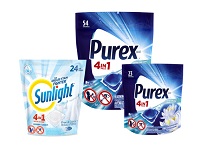
-Study: Plastic Use in Asphalt Pavements Showing Promising Results
Plastics Industry Association and NCAT study shows that asphalt formulations using recycled polyethylene (rPE) film recovered from retail locations could achieve many of the same benefits of traditional polymer-modified asphalt formulations.
According to the Environmental Protection Agency, approximately 33 million tons of plastics were generated in 2014, with only less than 10 percent being recycled. The asphalt industry, being a leader in recycling and sustainability, has been looking for ways to use this waste materials in roadways. As with any experimental material in our roads, the proper testing needed to be done to ensure the process would result in long-lasting and high-performing roadways. Petrochemicals Enzymes Recycling Cellulose
The Plastics Industry Association (PLASTICS) has worked to advance a research effort to explore using post-consumer recycled PE films as polymer additives in asphalt binder.
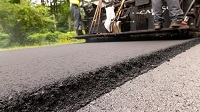
-China’s benzene weakens on ample supply & thinning demand
China’s benzene prices slipped gradually since the second week of June, after going up in early June boosted by firmer oil price, with East China index fluctuating down from 3,635yuan/mt on June 8 to 3,350yuan/mt on June 23. CFR China price slipped from $455/mt to around $425/mt. Trading sentiment slowed down as the supply-demand situation has shown signs of weakening. Petrochemicals Enzymes Recycling Cellulose
Crude oil prices stood above $40 per barrel, and the continuous support for benzene market is weakening. Market participants paid more attentions on the fundamental itself.
Sinopec revised down benzene listed price twice since June 15 by 200 yuan/mt in total to 3,500yuan/mt by June 23, reflecting persistent weakness in China domestic cargoes as inventories continued to grow while buying interests from traders and downstream buyers began to thin.
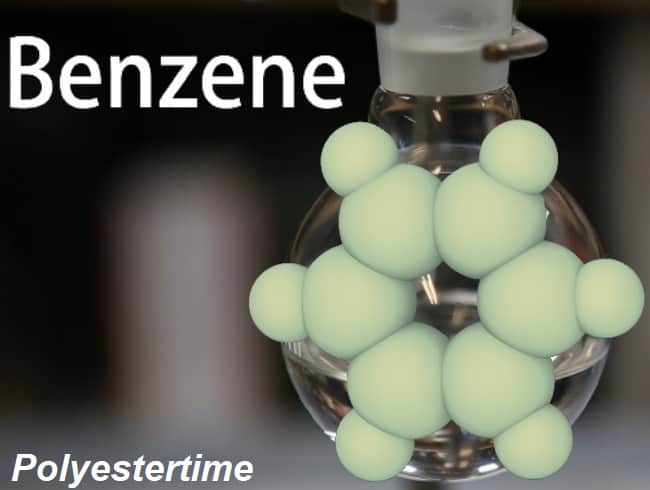
-Towards a Green Future: Efficient Laser Technique Can Convert Cellulose into Biofuel
Scientists in Japan have developed a novel laser-based strategy for the effective degradation of cellulose into useful products.
The plant product cellulose is the most abundant form of biomass globally and can be converted into useful products such as biofuels. However, the processing of this biopolymer is cumbersome, owing to its rigid, water-insoluble structure.
To overcome this, scientists in Japan recently developed a novel laser-based technique that makes cellulose degradation easier. Petrochemicals Enzymes Recycling Cellulose
Because this reaction does not require harsh conditions, it can lead to the efficient application of cellulose across various industries, especially environmental technology.
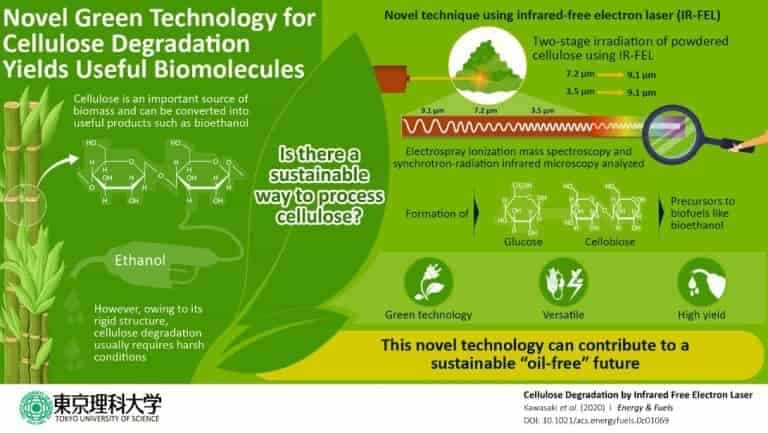
-Europe chems supply chains strengthen but pre-crisis conditions still in the distance
Activity along European chemicals supply chains is gradually reviving after the disruption of of the coronavirus pandemic but pre-crisis operating conditions still remain a long way away, according to distributors’ trade group FECC.
The response to the pandemic led to border closures, quarantine measures and other disruptions that, particularly in the early days of European lockdown, resulted in tailbacks at some borders and disruptions at ports. Petrochemicals Enzymes Recycling Cellulose
The level of disruption has eased since governments began to reopen economies, with the shockwaves of March-April continuing to ripple through the economy, but supply chains that were strongly impacted have started to revive, although pre-Covid conditions remain on the distant horizon, according to Dorothee Arns, director general of the European Association of Chemical Distributors (FECC).
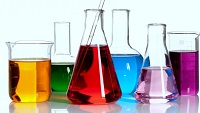
-Northwest European naphtha margins near 2-year high
Naphtha refining margins in northwest Europe have reached their highest level in almost two years, supported by low refinery runs in the region and firm export demand.
The northwest European naphtha cargo price was assessed at $392.25/t yesterday, the highest on an outright basis since 5 March and 56¢/bl above Atlantic basin crude benchmark North Sea Dated. The last time naphtha values were above the crude benchmark in northwest Europe was on 15 August 2018.
Naphtha was also assessed above the benchmark Eurobob Oxy gasoline contract. Prior to the onset of the Covid-19 pandemic, naphtha had closed higher than the benchmark gasoline contract on only two trading days since 2014.
But the disruption to European refining has pushed naphtha prices above gasoline on four separate occasions since the beginning of March, albeit never for longer than three consecutive trading days. Petrochemicals Enzymes Recycling Cellulose
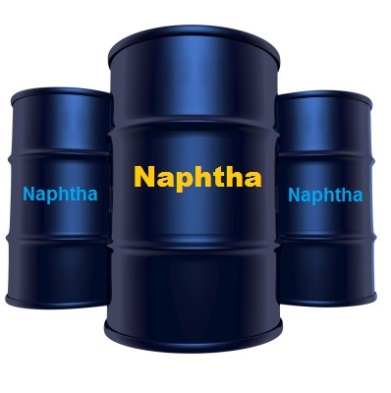
-Recycling news from prime producers
Virgin plastics companies recently released PCR offerings, published 2019 sustainability reports and provided updates on chemical recycling technologies.
The following are a few recent announcements from global chemical giants:
Eastman Chemical has released a copolyester with recycled content produced through a PET depolymerization process.
The Tritan Renew copolyester, which is suitable for a range of durable goods, incorporates 50% recycled content. To produce the recycled plastic, Eastman uses a methanolysis process to depolymerize tough-to-recycle polyester items into dimethyl terephthalate (DMT) and ethylene glycol (EG), which are monomers that can then be used to make new plastic. Petrochemicals Enzymes Recycling Cellulose
The Kingsport, Tenn.-based company calls its process “polyester renewal technology (PRT).” A company spokesperson said the use of scrap plastics for the initial Tritan Renew products is expected to result in an 8% reduction in greenhouse gas emissions when compared with the same grade of Tritan produced from virgin resources.
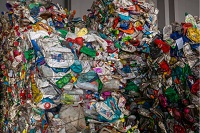
Petrochemicals Enzymes Recycling Cellulose
